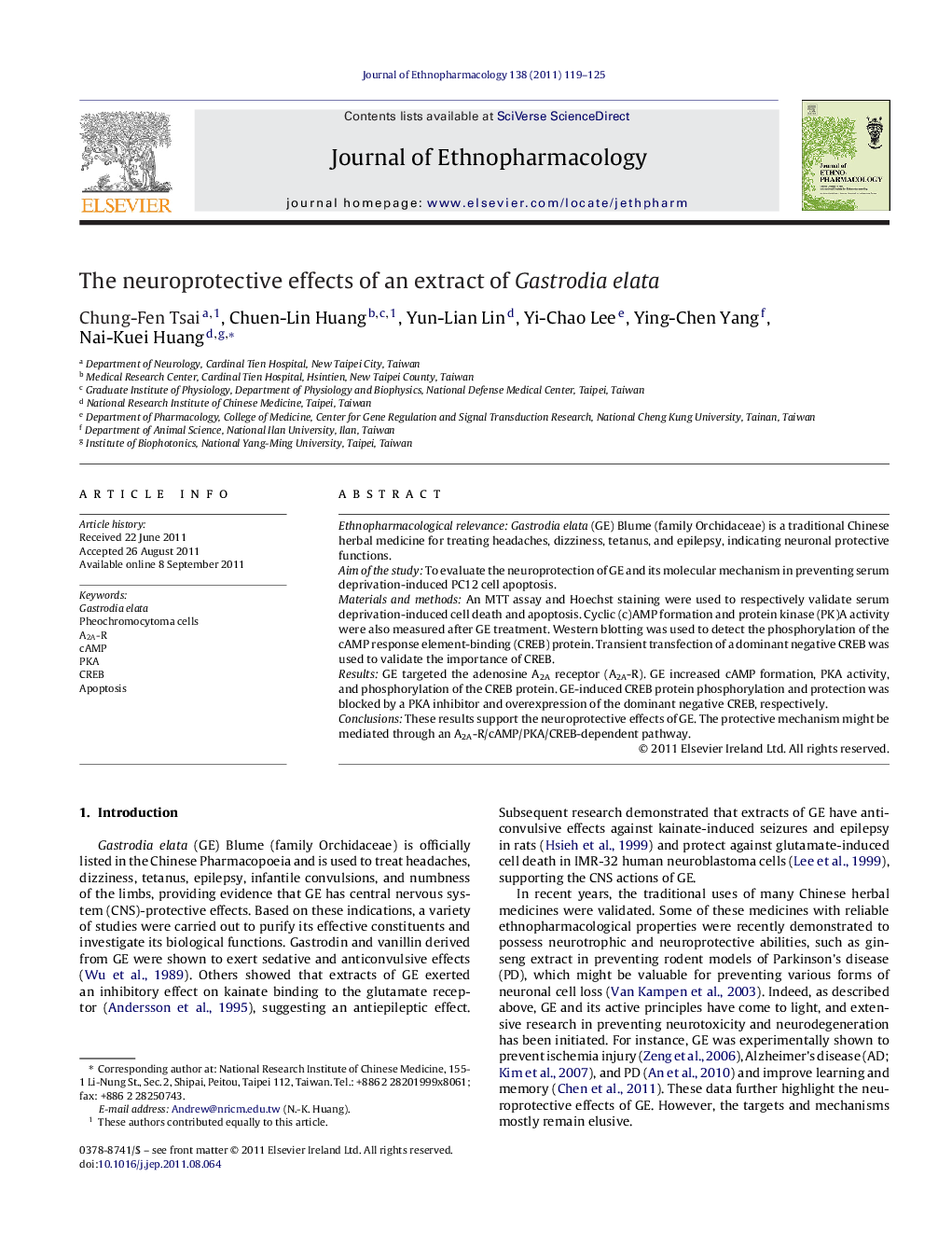| Article ID | Journal | Published Year | Pages | File Type |
|---|---|---|---|---|
| 5839228 | Journal of Ethnopharmacology | 2011 | 7 Pages |
Abstract
Ethnopharmacological relevanceGastrodia elata (GE) Blume (family Orchidaceae) is a traditional Chinese herbal medicine for treating headaches, dizziness, tetanus, and epilepsy, indicating neuronal protective functions.Aim of the studyTo evaluate the neuroprotection of GE and its molecular mechanism in preventing serum deprivation-induced PC12 cell apoptosis.Materials and methodsAn MTT assay and Hoechst staining were used to respectively validate serum deprivation-induced cell death and apoptosis. Cyclic (c)AMP formation and protein kinase (PK)A activity were also measured after GE treatment. Western blotting was used to detect the phosphorylation of the cAMP response element-binding (CREB) protein. Transient transfection of a dominant negative CREB was used to validate the importance of CREB.ResultsGE targeted the adenosine A2A receptor (A2A-R). GE increased cAMP formation, PKA activity, and phosphorylation of the CREB protein. GE-induced CREB protein phosphorylation and protection was blocked by a PKA inhibitor and overexpression of the dominant negative CREB, respectively.ConclusionsThese results support the neuroprotective effects of GE. The protective mechanism might be mediated through an A2A-R/cAMP/PKA/CREB-dependent pathway.
Related Topics
Health Sciences
Pharmacology, Toxicology and Pharmaceutical Science
Pharmacology
Authors
Chung-Fen Tsai, Chuen-Lin Huang, Yun-Lian Lin, Yi-Chao Lee, Ying-Chen Yang, Nai-Kuei Huang,
